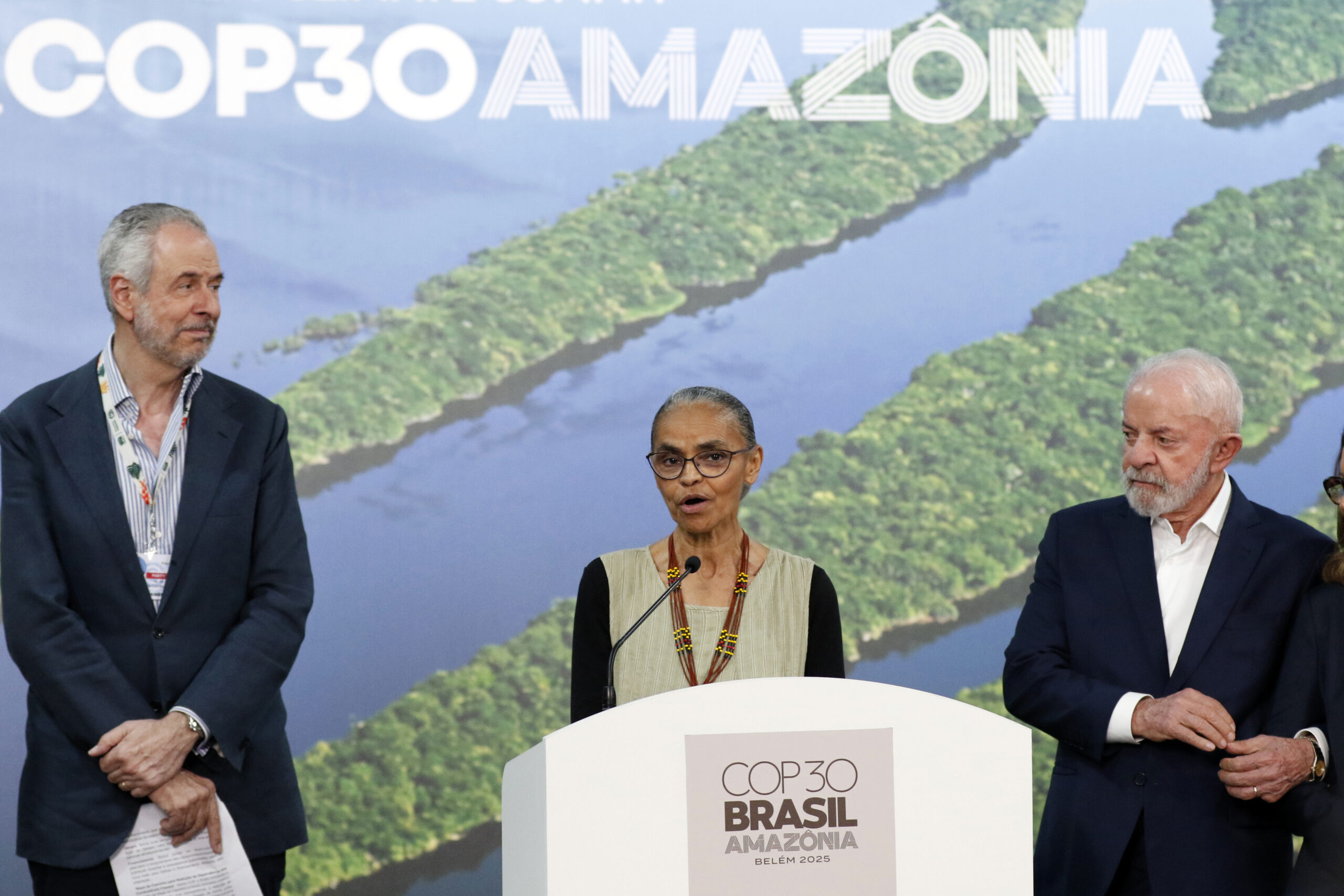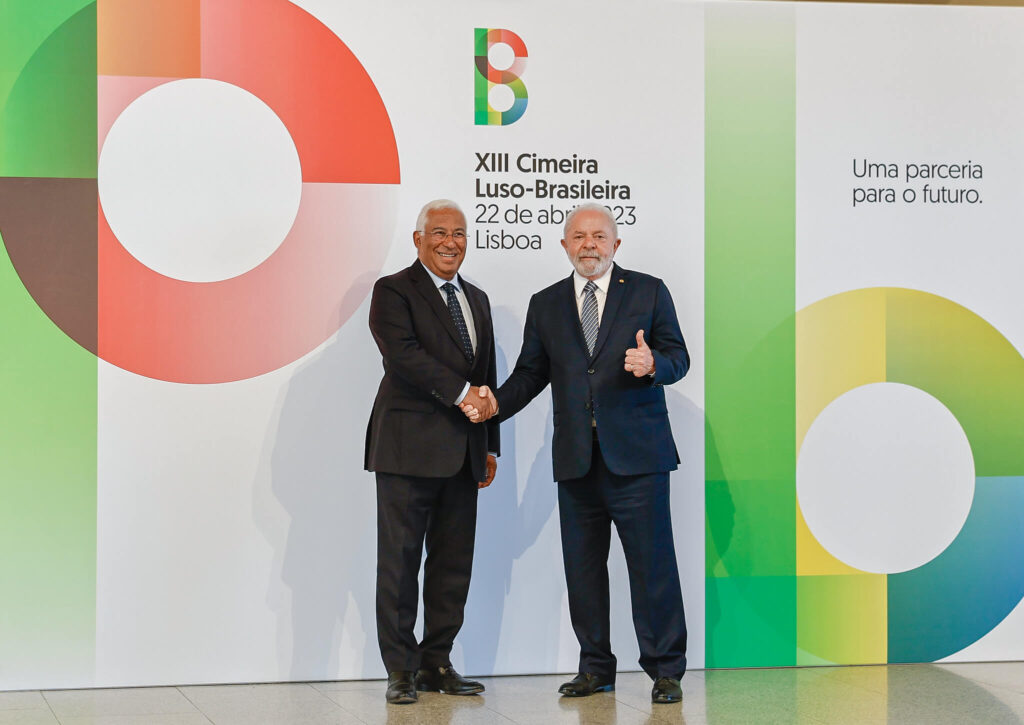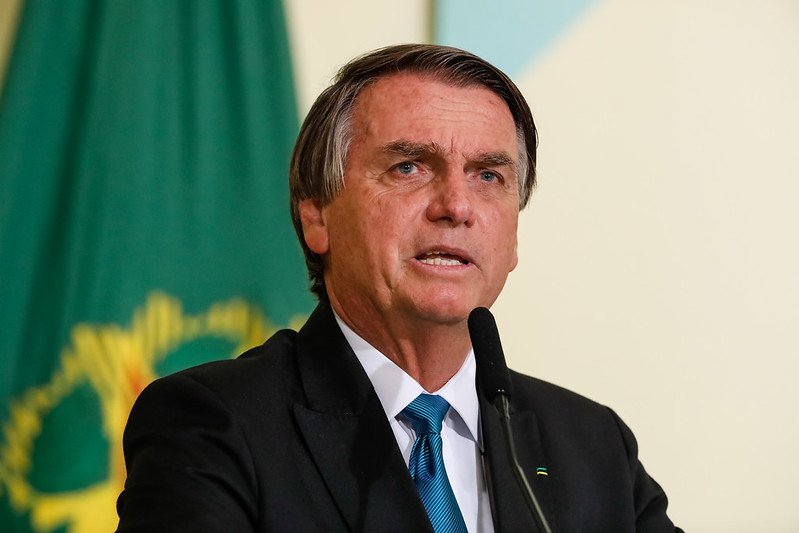São Paulo, Brazil — COP30, the UN’s annual climate summit, came to an end last Saturday without addressing one of the main factors to global warming: the gradual elimination of fossil fuels.
The formal agreement signed on November 22 by 195 countries in Belém, Brazil after over 10 days of negotiations did not include initiatives to replace oil and coal from global industries, for example. The theme was one of the key focuses of the “roadmap” for fossil-fuel transition constructed by the Brazilian government to defend energy transition to greener sources, but did not get to be pointed at the final proposal of the conference.
The result contrasts statements made two years ago at COP28 in Dubai, when world leaders decided that the planet should move away from non-renewable energy sources.
Instead, the document concentrated on 29 decisions that mainly focus on increasing climate financing as a way to reduce greenhouse gas emissions in line with the goal of keeping the average global temperature at around 1.5 °C as set out in the Paris agreement.
The document “acknowledges that the global transition towards low greenhouse gas emissions and climate-resilient development is irreversible and the trend of the future,” but does not go further to describe what should be done to achieve the transition.
In an effort to consolidate climate funding, Brazil’s president Luiz Inácio Lula da Silva, at the Leaders Summit, launched an investment fund that aims to pay back those who make donations to protect tropical forests such as the Amazon. The so-called Tropical Forest Forever Facility (TFFF) aims to raise a total of $125 billion USD from both governments and foundations, $100 billion USD of which will be held in private investments.
Priscila Caneparo, a postdoctoral fellow in international law at the Pontifical Catholic University of São Paulo (PUC-SP), was hopeful that the conference could go beyond the empty rhetoric heard at international summits, but also cautioned that COP30 was formed by negotiation blocks which include oil-based economies like those of Qatar, Saudi Arabia and the United Arab Emirates. Additionally, the world’s biggest economy and the second-largest emitter of CO2, the United States, was not present at the summit.
“They don’t believe there needs to be an elimination of fossil fuel use. They say there needs to be an orderly transition. Which is basically not eliminating them, but trying a coordinated replacement over time,” the academic told Brazil Reports.
Caneparo also mentioned that the developmentalist bloc — formed by Brazil, India and China — see historical debt from developed countries because they need to preserve more, having already degraded their environment, including due to the first wave of the industrial revolution, which gave them a longer “degradation time,” she explained.
“So what they say – India, Brazil, China – is basically: if you don’t let us degrade at a slightly higher percentage than developed countries, we will always be stuck in underdevelopment,” she said, pointing to India’s record coal production.
“[India] talks about a transition sustained by coal, and we know that coal is extremely harmful to the environment,” said Caneparo. “Brazil also talks about a transition in relation to the issue of fossil fuels, and it’s not about elimination, especially because we have oil exploration in the Amazon estuary, in the pre-salt basin, saying that we cannot abandon this idea, which also generates a developmentalist character.”
Featured image: Brazil’s president Luiz Inácio Lula da Silva, with the president of COP30, André Corrêa do Lago, to his left and the Minister of the Environment, Marina Silva, to his right, during a press conference after meetings at COP30
Author: Bruno Peres/Agência Brasil
Source: Agência Brasil










